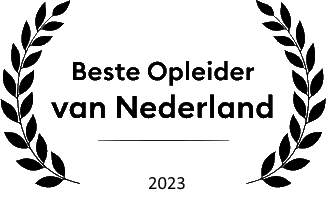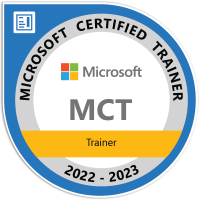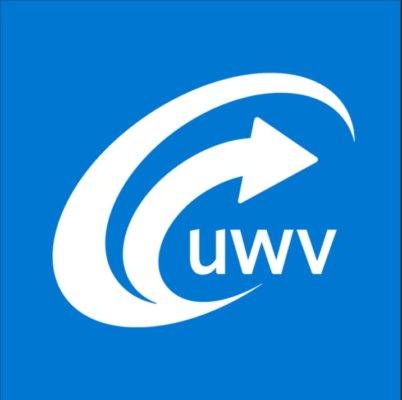Lesprogramma
1. Introduction to Requirements Engineering 5%
Candidates will be able to:
1.1 Define the term ‘requirements’ and the characteristics of a requirement.
1.2 Explain the rationale for Requirements Engineering and the application of the
Requirements Engineering framework.
1.3 Explain the rationale of requirements planning and estimating.
1.4 Describe the elements that should be considered as the contents of a project
initiation document, terms of reference or project charter:
1.4.1 Business objectives.
1.4.2 Project objectives.
1.4.3 Scope.
1.4.4 Constraints (budget, timescale, standards).
1.4.5 Authority or sponsor.
1.4.6 Resources.
1.4.7 Assumptions.
2 Hierarchy of Requirements 10%
Candidates will be able to:
2.1 Show understanding of the rationale for the requirements hierarchy and describe how
it is applied in Requirements Engineering.
2.2 Explain the categories within the hierarchy:
2.2.1 Business policy (general) requirements.
2.2.2 Technical policy requirements.
2.2.3 Functional requirements.
2.2.4 Non-functional requirements.
3 Stakeholders in the Requirements Process 5%
Candidates will be able to:
3.1 Define the term stakeholder.
3.2 Explain the key roles of the following project stakeholders during Requirements
Engineering:
3.2.1 Project Manager.
3.2.2 Developer.
3.2.3 Tester.
3.2.4 Solution Architect.
3.3 Explain the key roles of the following business stakeholders during Requirements
Engineering:
3.3.1 Project Sponsor.
3.3.2 Subject Matter Expert.
3.3.3 End User.
3.3.4 Business Manager.
3.4 Interpret a given scenario, identify stakeholders and describe their contribution to
Requirements Engineering.
4 Requirements Elicitation 20%
Candidates will be able to:
4.1 Explain different knowledge types:
4.1.1 Tacit / Non-tacit (explicit).
4.1.2 Individual / Corporate.
4.2 Interpret a given scenario to identify different knowledge types.
4.3 Interpret a given scenario to identify relevant elicitation techniques from the following
list:
4.3.1 Interviews.
4.3.2 Workshops.
4.3.3 Observation.
4.3.4 Focus groups.
4.3.5 Prototyping.
4.3.6 Scenario analysis.
4.3.7 Document analysis.
4.3.8 Surveys.
4.3.9 Record searching.
4.3.10 Special purpose records.
4.3.11 Activity sampling.
4.4 Describe the principles and application of the elicitation techniques (listed in 4.3).
4.5 List the advantages and disadvantages of the elicitation techniques (listed in 4.3).
4.6 Discuss the suitability of the elicitation techniques (listed in 4.3) for Agile and linear
development approaches.
5 Use of Models in Requirements Engineering 10%
Candidates will be able to:
5.1 Explain the rationale for modelling the functional requirements (processing and data)
of an information system and describe how models help the analyst to:
5.1.1 Generate questions in order to clarify a requirement and remove ambiguity.
5.1.2 Define business rules.
5.1.3 Cross-check requirements for consistency and completeness.
5.2 Interpret a given scenario to develop a context diagram.
5.3 Interpret a given scenario to identify the different types of event that can initiate
processing (external, time based, internal).
5.4 Understand how to construct a UML use case diagram for a given scenario to
represent the functional requirements for an information system, including the
following notational elements:
5.4.1 System boundary.
5.4.2 Actors (user role, another system and time).
5.4.3 Use cases.
5.4.4 Communication relationships (associations) between actors and use cases.
– It should be noted that there is no requirement to understand include and extend
constructs.
5.5 Interpret a UML Class diagram (comprising of classes, attributes, associations and
multiplicities) that represents the data requirements for a given scenario, and
describe the business rules that are represented.
– It should be noted that there is no requirement to understand operations,
association classes, generalisation (and associated concepts of inheritance and
polymorphism), aggregation and composition.
5.6 Explain the benefits to be derived from cross-referencing models and illustrate how
this can be achieved by using a CRUD matrix (of function or event against data).
6 Requirements Documentation 15%
Candidates will be able to:
6.1 Explain the rationale for creating a requirements document and for documenting
requirements at different levels of definition, relating to:
6.1.1 The nature of the solution.
6.1.2 The level of priority.
6.1.3 The delivery approach.
6.2 Understand how to construct requirements documentation for a given scenario, using
the following specified styles:
6.2.1 User story.
6.2.2 Use case.
6.2.3 Requirements list.
6.2.4 Requirements catalogue.
6.3 Describe a requirement in terms of its characteristics or attributes and explain why
each of the following may be needed:
6.3.1 Identifier.
6.3.2 Name.
6.3.3 Description.
6.3.4 Source.
6.3.5 Owner.
6.3.6 Author.
6.3.7 Type (general, technical, functional, non-functional).
6.3.8 Priority.
6.3.9 Business area.
6.3.10 Stakeholders.
6.3.11 Associated non-functional requirements.
6.3.12 Acceptance criteria.
6.3.13 Related requirements.
6.3.14 Related documents.
6.3.15 Comments.
6.3.16 Rationale.
6.3.17 Resolution.
6.3.18 Version history.
6.4 Describe the structure and contents of the requirements document:
6.4.1 Introduction and background.
6.4.2 Business process models.
6.4.3 Function model (use case diagram) of defined requirements.
6.4.4 Data model (class model) of defined requirements.
6.4.5 Requirements (defined using the selected documentation style).
6.4.6 Glossary.
7 Requirements Analysis 20%
Candidates will be able to:
7.1 Explain the rationale for prioritising requirements, using the MoSCoW prioritisation
technique.
7.2 Interpret a given scenario and apply the MoSCoW prioritisation technique.
7.3 Examine individual requirements; apply filters and quality criteria to assess that they
are well defined.
7.4 Use requirements for a given scenario to check for technical, business and financial
feasibility.
7.5 Assign a requirement type to an individual requirement.
7.6 Organise the requirements for a given scenario by requirement type and functional
area.
7.7 Within a given requirement set:
7.7.1 Identify and resolve duplicate requirements.
7.7.2 Identify and reconcile overlapping requirements.
7.7.3 Identify conflicting requirements and explain how requirements negotiation
could be applied to resolve these conflicts.
7.7.4 Identify ambiguous requirements and aspects to be defined to remove
ambiguity.
7.8 Explain the use of prototyping to elaborate requirements.
8 Requirements Validation 5%
Candidates will be able to:
8.1 Describe the rationale for the following approaches to requirements validation:
8.1.1 Informal reviews.
8.1.2 Formal reviews:
8.1.2.1 Structured walkthrough.
8.1.2.2 Prototype reviews.
8.2 Explain the steps to be followed in the validation process for requirements artefacts:
8.2.1 Plan review.
8.2.2 Conduct review of artefacts.
8.2.3 Collect comments.
8.2.4 Undertake actions.
8.2.5 Revise artefacts.
8.2.6 Obtain approval.
9 Requirements Management 10%
Candidates will be able to:
9.1 Explain the rationale for requirements management.
9.2 Define the elements of requirements management and the links between them.
9.3 Explain the structure and elements of a change control process.
9.4 Explain the structure and elements of version control.
9.5 Define two forms of traceability and how projects benefit from each of them:
9.5.1 Horizontal (forwards from origin to delivery and backwards from delivery to
origin).
9.5.2 Vertical (to business objectives).
9.6 Explain the rationale and the approach to achieving requirements traceability..
3 dagen
Max 16 deelnemers
![Microsoft Partner – Silver Data Analytics]()
![Microsoft Certified Trainers]()
![Cedeo]()
![UWV]()


 Terug naar het overzicht
Terug naar het overzicht 



 Toon data en locaties
Toon data en locaties  Brochure
Brochure 





